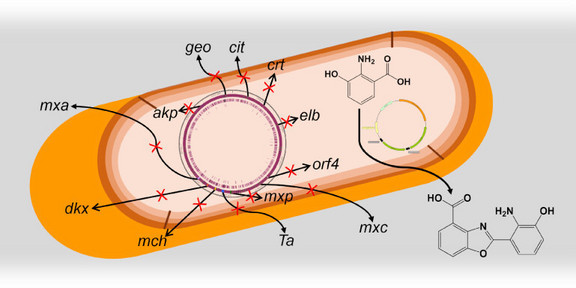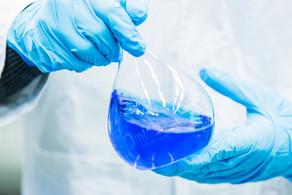Genome Reduction Improves Recombinant Benzoxazole Production in Myxococcus xanthus

Abstract
Genome reduction is a fundamental concept in evolution. In synthetic biology, the same strategy has been adopted for the construction of cells with desired physiological and metabolic traits. In this study we report the impact of genome reduction on the biotechnological performance of Myxococcus xanthus. This predatory soil bacterium is a model system for coordinated social behavior, which ranges from cooperative feeding to the formation of fruiting bodies. The complexity of its lifestyle is reflected in a large genome, of which a significant portion harbors biosynthetic gene clusters (BGCs) for the production of secondary metabolites. These compounds are typically considered dispensable for growth under defined laboratory conditions. Therefore, the genomic deletion of these BGCs was expected to eliminate metabolic byproducts and to liberate biosynthetic resources, which could then be supplied to recombinant pathways. Our studies show that the consecutive removal of BGCs from the M. xanthus genome can considerably improve the titer of a recombinantly produced natural product. Furthermore, we observed that M. xanthus does not tolerate the combined elimination of certain BGCs, whereas individual deletions of the same loci are possible.







